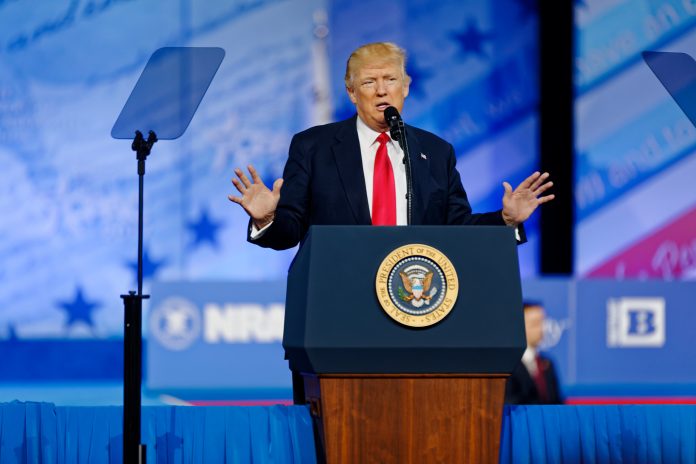On Thursday night, ten Democratic candidates will gather for the third official debate of this primary season. This debate will only be one night and include only ten candidates, so it should be smoother and more useful for potential voters. However, it is still likely that much of the debate will be taken up by detailed discussions of policy proposals on issues like health care, gun regulations or the environment. These discussions are worthwhile, interesting and give a good sense of what the candidates believe, but the emphasis on details belies the reality that presidents don’t make policy. They are merely part of a process along with congress and in many cases the states and the courts. These detailed discussions of policies seem like the right subject for the debate, but there are other bigger picture questions that are probably more important. Below are three questions that Democratic voters should be asking their candidates, but that might not be raised on Thursday night.
any candidate who even suggests that if they are not nominated they will consider running anyway, is essentially helping Donald Trump
Every candidate should be asked “Will you enthusiastically support any candidate on this stage, or not on this stage, if they win the nomination and will you promise not to run an independent bid if you are not the nominee?” Any candidate that does not give an unequivocal yes to both parts of this question should be shunned by Democratic voters. Any candidate who suggests they will not work to elect Bernie Sanders because he is too far left, Andrew Yang because he lacks the relevant experience, Marianne Williamson (who will not be on the stage Thursday) because she is too new agey or Joe Biden because he is too old and centrist, is not fit to lead the Democratic Party. Similarly, any candidate who even suggests that if they are not nominated they will consider running anyway, is essentially helping Donald Trump. It is absolutely critical that the Democratic Party and its voters unify around the nominee, whoever it is, and that voters hear that in clear terms from every candidate on the stage. Candidates who hesitate to make these twin pledges, to support the nominee and not run as an independent, do not deserve the support of any Democratic primary voter and contribute to the kinds of rifts and splits that are usually very costly in a general election.
The American people, and the Democratic Party, need to approach this election knowing that Trump has previously stated he would only accept election outcomes if he wins and recognize that the stakes for Trump are even higher now than they were four years ago
The next question is more difficult, but each candidate should be asked “What will your presidency look like if the Republican Party retains control of the Senate?” The Senate could go Democratic in 2020, but most analysts believe that will be an uphill fight for the Democratic Party. Therefore, all Democratic candidates should tell the country how they intend to govern with a Senate controlled by Mitch McConnell, a man who has dedicated his life over the last twenty years to thwarting Democratic presidents and policies with no concern for precedent, the Constitution, democracy or his own legacy. Answers such as “we will win back the Senate” or “my victory will change everything” are good sentiments, but they are not real answers to this question. Voters need to know which candidates will employ executive orders, which will work to abolish the filibuster, something that may not be possible with a Republican Senate anyway, on what issues they will compromise, how aggressively they will prosecute Republican Senators and their staffs for complicity in the criminality of the Trump administration and even how they see this undemocratic and atrophied institution functioning over the next decades. There are no easy answers to these questions, but candidates and voters who do not at least think about this are not grounding their politics sufficiently in reality.
The third question is difficult as well, but each candidate should be asked “What will you do if President Trump refuses to leave office if he is defeated?” This is a confounding and unprecedented question, but it must be asked. However, those candidates who recognize the need to have a plan in place that includes a legal, political and mobilization strategy are on the right track. The American people, and the Democratic Party, need to approach this election knowing that Trump has previously stated he would only accept election outcomes if he wins and recognize that the stakes for Trump are even higher now than they were four years ago. Defeat for Trump means spending the rest of his life in legal battles and possibly behind bars. Whoever is nominated by the Democratic Party must accept this and have a plan for preventing Trump from claiming election fraud, rallying Republicans behind him and threatening to incite violence following an election loss. Anybody who does not understand this, dismisses this scenario as unthinkable, or suggests that somehow the military will prevent this from happening has missed the gravity of what has happened to American democracy since November of 2016, should not be leading the Democratic Party and therefore is unlikely to be prepared to take on Donald Trump.
The debate Thursday night will be fun and interesting, but it would be a lot more valuable for America if these three questions were asked.
www.lincolnmitchell.com
Follow me on Twitter at http://twitter.com/LincolnMitchell

